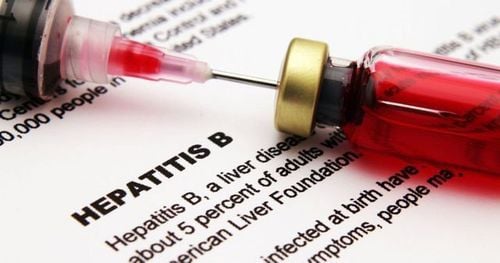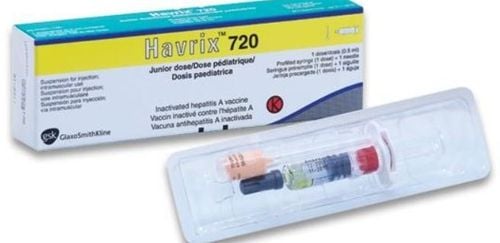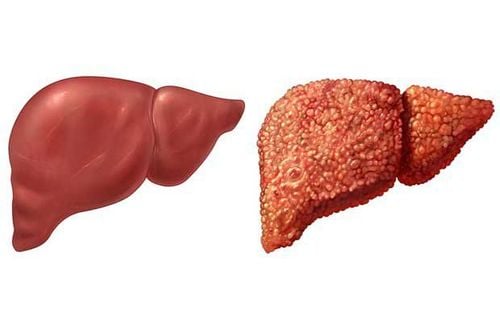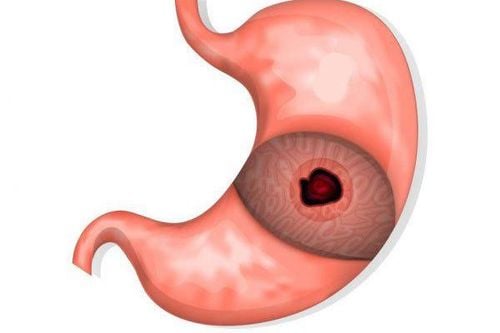This is an automatically translated article.
This article is professionally consulted by - Head of Department of Medical Examination & Internal Medicine - Vinmec Ha Long International General Hospital.Hepatitis B is a familiar name to many Vietnamese people. Hepatitis B infection greatly affects the patient's life in terms of daily life and social activities. So what are the most important things we need to know when it comes to hepatitis B? Join us to learn more about the disease, and can help you find the best prevention methods for yourself.
1. What is hepatitis B?
Hepatitis B is a liver disease caused by the hepatitis B virus (HBV). The disease has two processes, acute and chronic. Acute hepatitis B is usually acquired 6 months after the virus enters the body. Adults with good resistance to HBV infection are able to recover on their own and create immunity to the disease. Chronic hepatitis B is usually caused by lifelong HBV infection, accompanied by factors that negatively affect the liver (alcohol, beer, dirty food, ...) will manifest into disease. Whether or not you have a chronic hepatitis B infection depends on how old you are when you are infected. About 90% of infants infected with HBV will develop a chronic course, whereas only 5% of adults will. Chronic hepatitis B can progress to serious health problems such as cirrhosis and liver cancer, which can be fatal.Trắc nghiệm: Làm thế nào để bảo vệ lá gan khỏe mạnh?
Làm test trắc nghiệm kiểm tra hiểu biết về gan có thể giúp bạn nhận thức rõ vai trò quan trọng của gan, từ đó có các biện pháp bảo vệ gan để phòng ngừa bệnh tật.2. How common is hepatitis B in Vietnam?
Hepatitis B has a high incidence in Vietnam. Among first-time blood donors between the ages of 18 and 60, the percentage of healthy people carrying the hepatitis B virus varies by location, region, and region and ranges from 15 to 25%. Hepatitis B virus infection in healthy people and pregnant women in Vietnam also has a rate of 10-20%.
3. How is hepatitis B transmitted?
Hepatitis B is transmitted from an infected person to a healthy person by blood, semen and other body fluids. Thus, we can draw the following common transmission routes:Sex without prevention measures.

Viêm gan B lây truyền từ người bệnh sang người lành bằng đường máu, qua đường tình dục
Sharing potentially contaminated items such as needles, knives, scissors, ... with an infected person. Transmission from an infected mother with hepatitis B to her baby. Hepatitis B is not transmitted through eating and drinking and sharing daily living items, from breastfeeding or activities such as hugging, shaking hands, sneezing, so don't be too discriminating against those who have it. hepatitis B around you.
4. Symptoms of hepatitis B?
Depending on the resistance and lifestyle of each person, the symptoms of the disease are also different. Many people live with the virus for 20 years without serious health problems. However, when infected with the virus, the liver will also be more or less damaged. Common manifestations are fever, fatigue, loss of appetite, stomach pain, nausea, vomiting, dark urine, joint pain and jaundice. yellow eyes.5. How do I know if I am infected with the hepatitis B virus?
Blood test is the most effective method of evaluation. Through the test, the condition of your liver will be accurately shown on the tests.

Thông qua xét nghiệm, tình trạng gan của bạn sẽ được thể hiện chính xác trên các xét nghiệm
6. Who should be tested for hepatitis B and why?
Pregnant women should be screened for HBV. The test will help detect the health status of pregnant women and prevent hepatitis B for their babies early. Family members and people who have had sex with someone who has hepatitis B. People who live in an area with a high prevalence of hepatitis B. People with certain diseases, such as HIV, need chemotherapy or dialysis. Healthcare workers who come into contact with large volumes of patients are at risk of hepatitis B on a daily basis, especially nurses. People of the third sex. All of the above subjects are at high risk, so they need to be tested. If they are not positive, they will be vaccinated against the disease.
7. How is hepatitis B treated?
A reasonable work and rest regime, adequate nutrition is the best way to maintain health for people with hepatitis B. Some severe cases will require hospitalization.
Một chế độ làm việc nghỉ ngơi hợp lý, ăn uống đầy đủ chất dinh dưỡng để duy trì sức khỏe
8. Is hepatitis B preventable?
The answer is yes. The best way to prevent the disease is to get vaccinated. Currently vaccines are safe, you can choose reputable prevention centers to receive timely and effective hepatitis B vaccination.9. How does hepatitis B affect the fetus?
Pregnant mothers infected with hepatitis B can transmit the disease to their babies. Fortunately, transmission of the disease can be prevented by getting vaccinated against hepatitis B within 12 hours of the baby's birth. In addition, if the mother is detected early hepatitis B can and depending on the condition, the doctor will consider whether the need for antiviral treatment to prevent transmission to the baby in the future.
10. Diet for people with hepatitis B?
A reasonable diet plays an important role in protecting your liver, specifically reducing the overload on the liver in detoxifying, creating conditions for tissue regeneration and preventing further damage to cells. liver cells. Each stage of the disease has a different diet, ensuring the best health for you at that time.Please dial HOTLINE for more information or register for an appointment HERE. Download MyVinmec app to make appointments faster and to manage your bookings easily.
Synthesized source: pasteur.com












